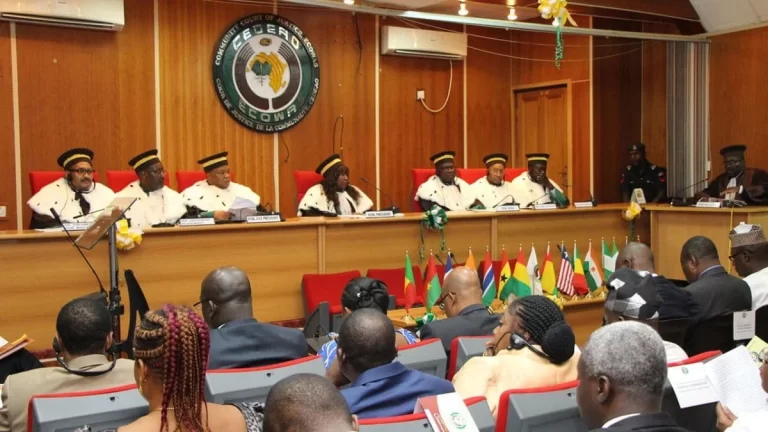The ECOWAS Court has dismissed an application filed by former National Security Adviser, retired Col. Sambo Dasuki, praying the court to compel the Nigerian government to enforce its judgment delivered in his favour on October 4, 2016.
The News Agency of Nigeria reports that the court had, in the judgment, declared Dasuki’s arrest and detention by the Nigerian government unlawful and a violation of his rights.
Justice Sengu Koroma, the Judge Rapporteur, while delivering judgment in Abuja on Dasuki’s application for enforcement of fundamental rights, dismissed it on the ground that the court lacked jurisdiction to entertain or enforce the earlier judgment.
Koroma said the court was guided by laid down procedures regarding the enforcement of its judgments as enshrined in the Community Law, and the proper party to institute an enforcement failure claim.
“Having thoroughly assessed the claims and constitutive texts of the Court, it lacks the competence to adjudicate the present claim,” the court said.
NAN reports that in the suit marked: ECW/CCJ/JUD/23/16, Justice Friday Nwoke had declared the government’s action against Dasuki as “arbitrary, unlawful, a mockery of democracy and the rule of law, and a violation of local and international rights to liberty”.
The court had further held that the government’s action violated Dasuki’s rights under the African Charter of Human and People’s Rights, ACHPR, and the International Convention on Civil and Political Rights, ICCPR.
It, therefore, ordered the release of all the seized properties of the applicant, as well as the payment of N15, 000,000 damages to him.
Following the federal government’s failure to comply with and enforce the said judgment, the applicant, therefore, filed the application before the court for its enforcement.
Earlier at the hearing of the matter, the federal government denied the applicant’s allegations, stressing that the properties being claimed by Dasuki were subjects of ongoing criminal proceedings, which he did not disclose in the suit.
The respondent’s counsel had argued that the government had already fulfilled its obligations, adding that the court’s Chief Registrar had issued a Writ of Execution, making the relief prayed for by the applicant unnecessary.
The panel, which comprised Justice Edward Asante, Justice Sengu Koroma and Justice Ricardo Claúdio Gonçalves awarded no costs to parties in the suit.
